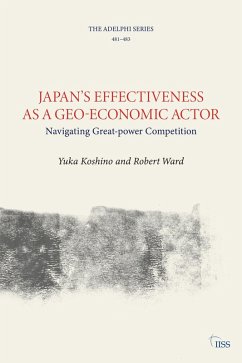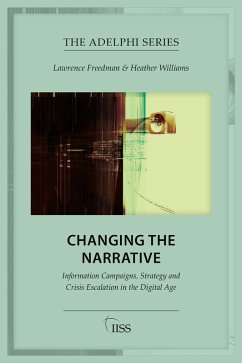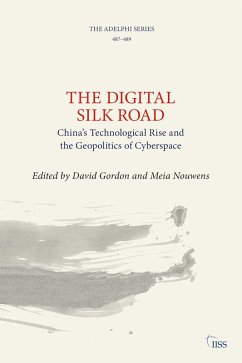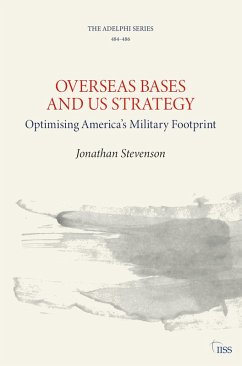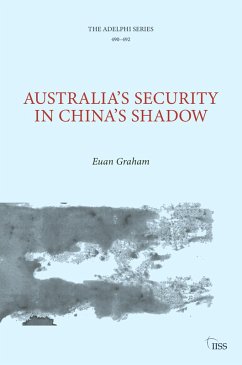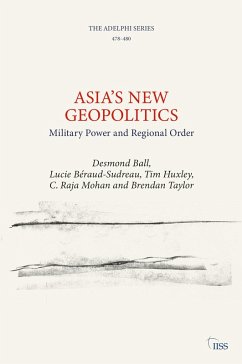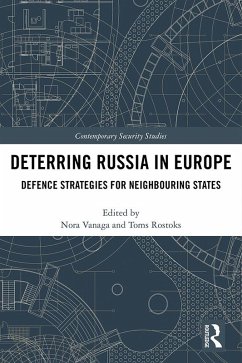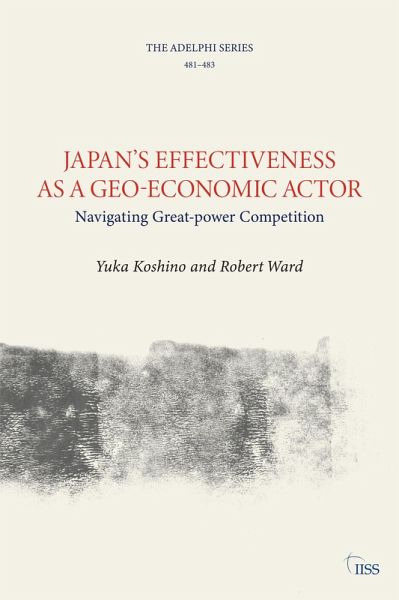
Japan's Effectiveness as a Geo-Economic Actor (eBook, PDF)
Navigating Great-Power Competition
Versandkostenfrei!
Sofort per Download lieferbar
18,95 €
inkl. MwSt.
Weitere Ausgaben:

PAYBACK Punkte
9 °P sammeln!
Geo-economic strategy - deploying economic instruments to secure foreign-policy aims and to project power - has long been a key element of statecraft. In recent years, it has acquired even greater salience given China's growing antagonism with the United States and the willingness of both Beijing and Washington to wield economic power in their confrontation. This trend has particular significance for Japan given its often tense political relationship with China, which remains its largest trading partner. While Japan's post-war geo-economic performance often failed to match its status as one of...
Geo-economic strategy - deploying economic instruments to secure foreign-policy aims and to project power - has long been a key element of statecraft. In recent years, it has acquired even greater salience given China's growing antagonism with the United States and the willingness of both Beijing and Washington to wield economic power in their confrontation. This trend has particular significance for Japan given its often tense political relationship with China, which remains its largest trading partner. While Japan's post-war geo-economic performance often failed to match its status as one of the world's largest economies, more recently Tokyo has demonstrated increased geo-economic agency and effectiveness.
In this Adelphi book, Yuka Koshino and Robert Ward draw on multiple disciplines - including economics, political economy, foreign policy and security policy - and interviews with key policymakers to examine Japan's geo-economic power in the context of great-power competition between the US and China. They examine Japan's previous underperformance, how Tokyo's understanding of geo-economics has evolved and, given constraints on its national power-projection, what actions Japan might feasibly take to become a more effective geo-economic actor. Their conclusions will be of direct interest not only for all those concerned with Japanese grand strategy and the Asia-Pacific, but also for those middle powers seeking to navigate great-power competition in the coming decades.
In this Adelphi book, Yuka Koshino and Robert Ward draw on multiple disciplines - including economics, political economy, foreign policy and security policy - and interviews with key policymakers to examine Japan's geo-economic power in the context of great-power competition between the US and China. They examine Japan's previous underperformance, how Tokyo's understanding of geo-economics has evolved and, given constraints on its national power-projection, what actions Japan might feasibly take to become a more effective geo-economic actor. Their conclusions will be of direct interest not only for all those concerned with Japanese grand strategy and the Asia-Pacific, but also for those middle powers seeking to navigate great-power competition in the coming decades.
Dieser Download kann aus rechtlichen Gründen nur mit Rechnungsadresse in A, B, BG, CY, CZ, D, DK, EW, E, FIN, F, GR, HR, H, IRL, I, LT, L, LR, M, NL, PL, P, R, S, SLO, SK ausgeliefert werden.




